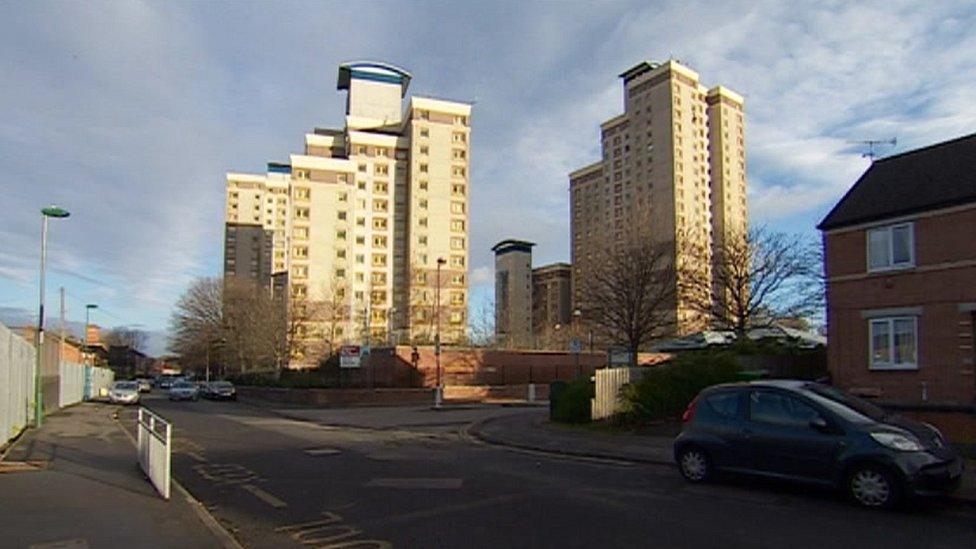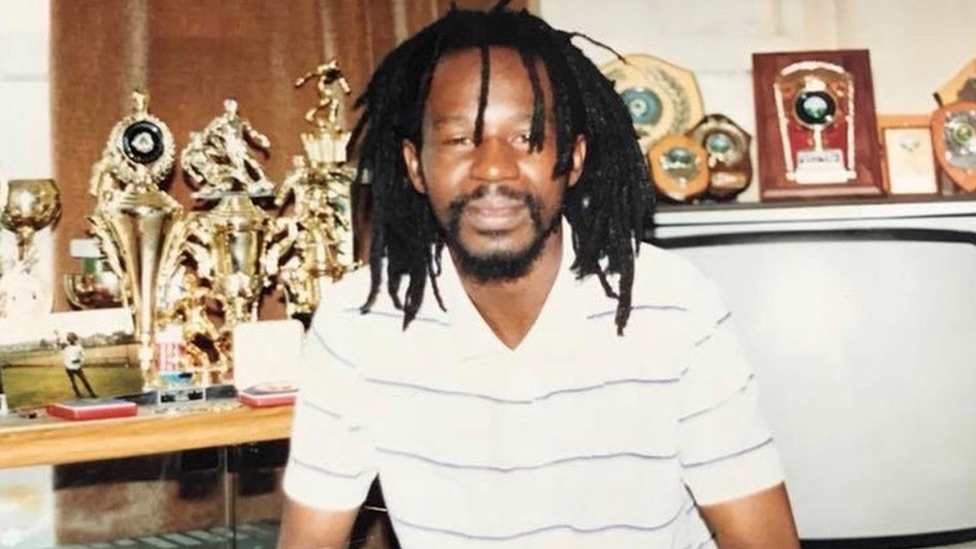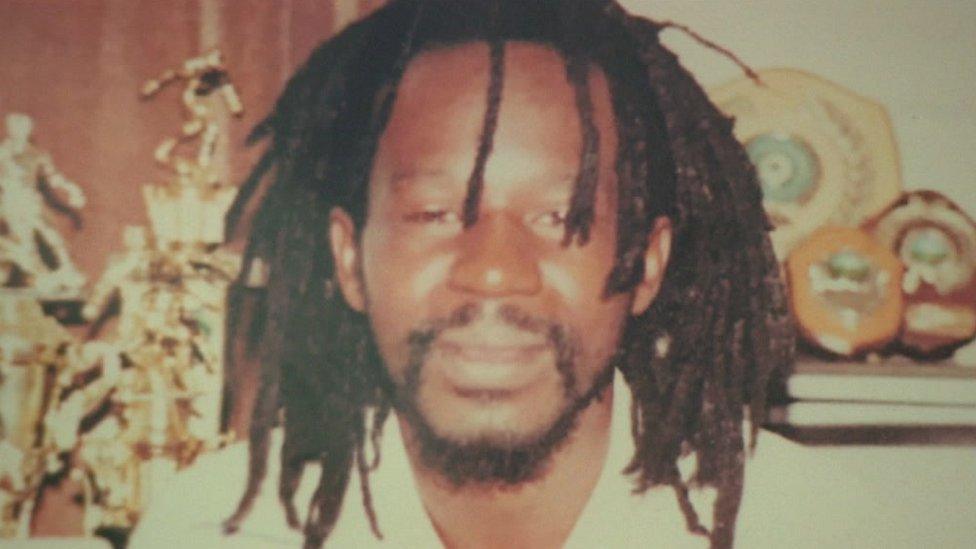Government denies evidence was kept from Errol Graham inquiry
- Published

Errol Graham was left with no money or heating in the months before his death
The government has denied claims that evidence was kept from an inquiry into the death of a man who starved after his benefits were stopped.
Errol Graham was found dead in his Nottingham flat in 2018, eight months after his employment support allowance (ESA) was ended.
The 57-year-old was suffering severe mental health problems, and a report published last month found missed opportunities to offer help.
Parliament debated his case on Tuesday.
The Nottingham City Safeguarding Adults Board report said Mr Graham weighed four and a half stone (30kg) when he died, with his body found by bailiffs sent to evict him for not paying rent for seven months.
His housing benefits had been stopped after he did not respond to the Department for Work and Pension's (DWP) repeated requests for information to review his entitlement to ESA.
The flat he rented from Nottingham City Homes had no heating or hot water, the gas supply had been cut off, and he had no income for food or utilities.
'Shocking and disturbing'
Speaking during an adjournment debate in the House of Commons, Labour MP Debbie Abrahams said a 2014 Work Capability Assessment that said Mr Graham would not be fit to work "indefinitely" was not shared with the review.
"The presenting of that report to the organisations that should have had it when making assessments of the circumstances of Errol's death has been carefully avoided. This is serious stuff," she said.
Repeating concerns from Mr Graham's family over the DWP's "honesty and transparency", she said the lack of independent reviews of deaths of other claimants indicated efforts to "avoid any form of scrutiny or accountability".
"It is clear to see why there is a crisis in confidence in the [DWP] and why there is a lack of trust from not just families, but claimants themselves," she said.
"In a 21st Century civilised society, the circumstances that led to Errol's death should shock us all, but Errol's death, unfortunately, is just one of many, and there is a pattern here."
Labour's Lilian Greenwood, whose Nottingham South constituency covers the flat where Mr Graham died, said failing to share the 2014 assessment could mean the DWP "did not assist the local authority in its really important duty" to review all the evidence.
"If tragedies such as Errol's death are to be prevented in future, which I am sure is what we all want, surely all agencies must share the relevant information with the board," she said.
"Errol's death was shocking and disturbing. We cannot change what happened, but we can and must learn the lessons."

Mr Graham died at Pine View Flats in Radford, Nottingham, in 2018
Tom Pursglove, minister for disabled people, health and work, said a "wording change" might explain why the 2014 assessment was not provided to the review by the DWP.
"The board's published report includes a wording change stating that agencies were asked to 'provide additional information' and not 'briefly summarise' as in previous versions," he told the Commons.
"That slight wording change could have led to the wrong impression that the DWP was asked to provide every single form and document relating to Mr Graham's benefit claim - even those outside the scope of the review.
"I believe that may have contributed to claims that information was hidden."
Mr Pursglove added it was "not our intention to set up an independent inquiry" into Mr Graham's death, but said changes "have already been implemented to support vulnerable customers".
"Where there is an allegation that the [DWP's] actions may have contributed to that outcome, we take it very seriously," he said.

Follow BBC East Midlands on Facebook, external, on Twitter, external, or on Instagram, external. Send your story ideas to eastmidsnews@bbc.co.uk, external.
- Published14 May 2023

- Published10 May 2021

- Published3 March 2021

- Published12 January 2021

- Published29 January 2020
